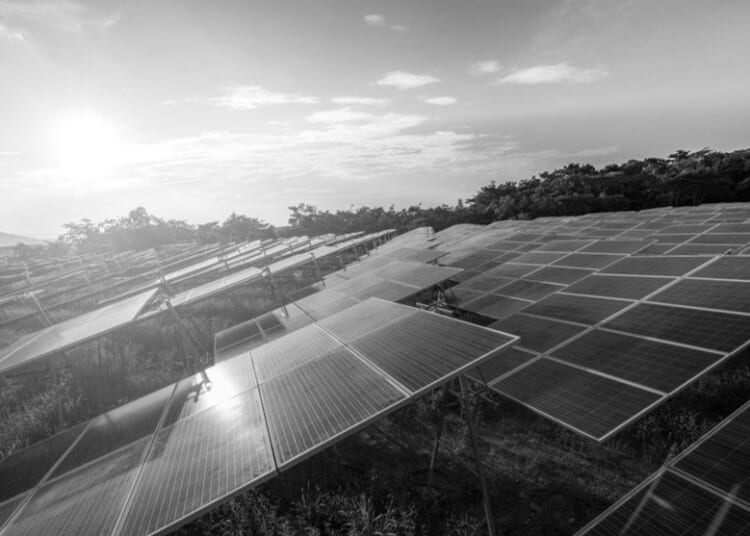A FEW weeks ago a small group of dedicated campaigners in North Lincolnshire heard that they had successfully overturned a decision to use prime agricultural land as a solar farm. This was the most recent of a Lincolnshire hat-trick this year, suggesting not just that people are finally waking up to the importance of growing food in the UK, but that they won’t put up with detrimental proposals imposed from above.
Take the 50-megawatt solar farm and substation on 178 acres of prime farmland that was approved by East Kesteven District Council in March 2023. This was despite objections from residents, Natural England and even Lincolnshire County Council. Locals who had opposed the initial application in 2022 launched and funded a Judicial Review challenging the decision. Success! A court order signed on February 8 this year quashed the decision. The district council had to accept that their decision was unlawful on grounds that it ‘failed to have sufficient regard to material considerations in relation to the policy of the development of solar farms on best and most versatile land’. In other words the decision ran counter to published government policy on land use.
How did this all come about? What helped without doubt was that one of the campaigners, Ru Yarsley, was elected as an independent councillor in May 2023. Like me, she is a member of the Independent Network, a group which supports councillors and local election candidates. In January this year a fellow Independent Network member and Lincolnshire independent councillor, Peter Overton, gave an impassioned speech at West Lindsey District Council on the same subject. Overton asked the council to support the county council’s position seeking to limit large industrial solar developments on agricultural land. The motion was passed unanimously.
In his speech to the council, Overton pointed to the wider impacts of such developments through the destruction of rainforest and problems associated with lithium mining. When I spoke to him he had been calculating the impact of China’s use of coal power in the production of solar panels. He estimated that this would seriously impact ‘the global net benefit’ of such initiatives, especially in the first few years, and pointed out that to reach Net Zero we need to reduce our energy consumption. (While many readers will not be convinced by the Net Zero imperative, it’s important to point out that there are concerns amongst those who are, in particular when it comes to imports from China.)
Another success came on the same day, February 8, when South Holland’s District Council rejected a 48-megawatt farm at Holbeach on the principle of the ‘best and most versatile’ (BMV) farmland north of Roman Bank (a bank built by the Romans to hold back the sea and allow the land to grow crops). The solar farm was not. Robert Gibson, leader of the South Holland Independents Group, said he was pleased they were able to shape the decision alongside the Conservative leadership group. When I spoke to him he said he was also opposing plans to run 87 miles of pylons through Lincolnshire taking energy from offshore wind farms to serve homes and businesses further south.
Soon after these decisions, the Prime Minister promised a new focus on food security. Rishi Sunak was speaking on February 20 at the National Farmers’ Union (NFU) conference responding to criticism that agriculture is not being given the same strategic importance as energy and the environment.
From a farming perspective, moves to use prime agricultural land for solar farms are just the latest in a long line of ‘irrational interventions’ faced by farmers, most of whom would like to be left alone to grow crops and raise livestock. Sometimes it seems the last thing the clever people in SW1 want farmers to do is feed the nation.
That was pretty much my ‘takeaway’ from a Better Statistics conference in Whitehall at which I spoke last week. The title was ‘Combating Climate Change – Where are we with Net Zero?’ I spoke alongside an Emeritus Professor and a Just Stop Oil activist. In his introduction Professor Piers Forster (interim chair of the UK Climate Change Committee) explained that the ways in which the government wants farmers to reduce emissions have yet to be devised. In return I suggested that they take into account the views of small farmers in particular and offered to help. I said I was unconvinced by their priorities and presented the results of a survey of farmers our group had conducted last year on behalf of the specialist agri-business communications consultancy RDP. It showed, I told them, that climate change is well down the list of their priorities, coming eighth in a list of ten concerns presented to them). What they are much more concerned about are costs, prices, red tape and the weather: ‘Problems associated with legislation or other measures introduced to tackle climate change’ are more important than ‘problems associated with changes in the weather due to climate change’.
The only ‘farmer’ who has spoken to me about climate change is an ex-corporate executive who runs a vineyard in Sussex. He explained that if it were not for climate change he would not be able to grow his grapes. He went on to tell me how the Romans had vineyards as far north as Yorkshire. We seem to be increasingly living in an age of logic-defying dogma.
While all this work is being undertaken to change the nation’s electricity supply to wind farms and solar, I have no doubt that farmers will be more interested in JCB’s unveiling of a hydrogen fuel engine last year. My guess is they trust JCB more than they trust the government.

